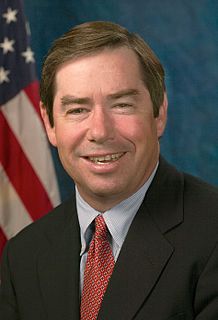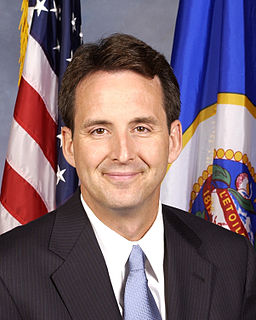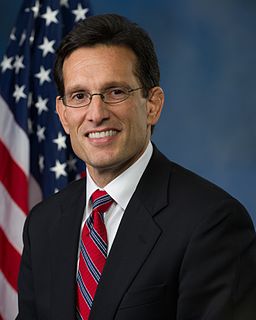A Quote by James T. Walsh
How we continue to fund Medicare and Medicaid into the future is a pressing issue of national concern.
Related Quotes
The American people I talk to don't spend every moment thinking, 'How can I tax my neighbor more than they're being taxed?' They say, 'How can I get a good job? How can my kids get good jobs? How can seniors have a confidence in their future when they know that Social Security, Medicare and Medicaid are bankrupt?'
I think if you look at Medicare and Medicaid, the premise was that government needs to provide some assistance to people who aren't able to take care of themselves. I think we all share that goal, Republicans and Democrats. I don't think anybody's gonna go back now and say, Let's abolish, or reduce, Medicare and Medicaid. But as we confront the challenges and the responsibilities of our time - from here on - how do we serve more people or different people who are in need of financial assistance? Just forever having the government expand to address all of that seems unwise.
While the Left seems obsessed with increasing taxes and spending even more money, conservatives have focused more heavily on the need for spending restraint and entitlement reform - primarily to preserve and protect the future of the Medicare program. Overlooked in all of this is the future of Medicaid.
When you talk about raising that debt limit, the only way that I would ever support raising the debt limit if we also talk about budgetary controls on the federal government, capping its spending, how do we deal with the Social Security, Medicare and Medicaid problems, because they cannot continue to run on auto-pilot.
I believe Washington should be a more active participant focusing on the issue of why corporate shareholders and mutual fund shareholders are not given fair treatment by corporate management and mutual fund management. We need to develop a national standard of fiduciary duty to ensure that these agents, if you will, are adequately representing the principles - pension beneficiaries and mutual fund shareholders - whom they are duty bound to serve.
There is a lot of fiscal conservatives in the United States senate that didn't vote for that because we understand that national security spending is not the reason why we have a debt. Our debt is being driven by the way Social Security, Medicare, and Medicaid and, by the way, the interest on the debt is structured in the years to come.
































